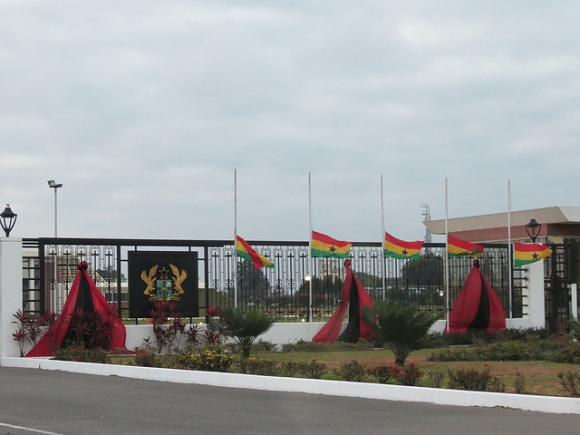The Jubilee House, usually a hub of brisk activity, stands eerily quiet under the gray, overcast skies of Accra.
A steady drizzle falls, casting a cold, mournful pall over the presidential complex.
The usual flurry of aides, ministers, and visitors has ceased, replaced by hushed conversations among small clusters of staff gathered in corridors and offices, their voices low as they discuss the tragic helicopter crash that has shaken the nation.
Among the deceased were Environment Minister Ibrahim Murtala Mohammed, Defence Ministry official Dr. Edward Omane Boamah, and other prominent figures.
Other victims include Muniru Mohammed, Acting Deputy National Security Coordinator; Samuel Aboagye, a former Member of Parliament; and Samuel Sarpong, a Vice Chairman of the NDC.
The crew members who perished were Squadron Leader Peter Bafemi Anala, Flying Officer Mane-Twum Ampadu, and Sergeant Ernest Addo Mensah.
Security personnel remain at their posts, their expressions grave, standing rigidly against the backdrop of Ghana’s flag flying at half-mast—a stark symbol of national grief.
The president, who was scheduled to travel to the Central Region today, has cancelled all engagements, remaining inside as the weight of the tragedy sinks in.
The only movement comes from occasional officials arriving to offer condolences or attend emergency meetings, their footsteps muted on the wet pavement.
The air is thick with sorrow, the rhythmic patter of rain against the windows the only sound breaking the silence.
Even the usual hum of generators and distant city noise feels subdued, as if the nation itself is holding its breath in mourning.
Source: Graphic.com.gh
ALSO READ:



